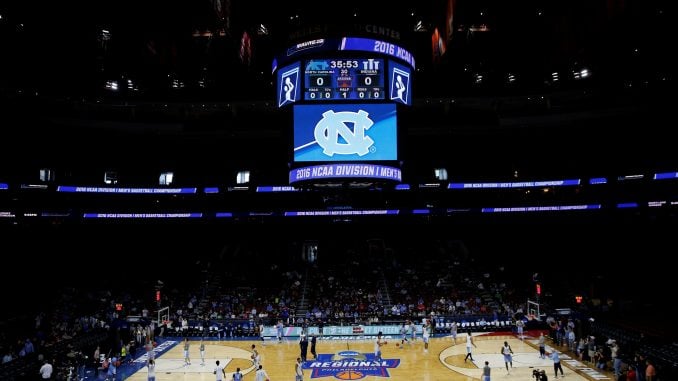
H.B. 2, the bathroom law, has messed with North Carolina. Boycotts are taking sporting events out of state. LGBTQ folks want dignity; other folks want privacy when undressing. We’re fussing too much.As a lawyer and a Democrat, I have two ways to take that fussing. If I take it as a Democrat, I might start finger-pointing at my Republican friends. I’d sooner take it as a lawyer. The job of the law is to resolve disputes peacefully.And that can happen. The governor and the General Assembly have a common interest in getting the dismay and the boycotts of H.B. 2 behind us. Let the games begin, again.No compromise is perfect. But bathrooms didn’t have us pointing fingers in February 2016, before Charlotte passed its nondiscrimination ordinance (NDO) that led to H.B. 2. The General Assembly tolerated the status quo ante Charlotte, including 18 non-bathroom NDOs (six protecting gender identity and expression), allowing non-threatening access to things like public housing and city jobs.What if there were a time machine?Former governor Jim Martin, a Republican, suggests going back to the law as of February 2016 reverting to “pre-existing law and practice.” Anything on the books then is OK. Anything later is not. Put the toothpaste back in the tube. Democrats who want more will need a new election.For bathrooms, Martin would revert to the old law of trespassing, with state pre-emption of any future local ordinance. Any Peeping Tom and predator problems become non-problems, as they were pre-Charlotte. Individuals would be entitled to take clothes off where members of the other sex are not present. So imagine that Caitlyn Jenner, or someone like her, uses the ladies’ room. That’s OK, unless someone complains, saying she’s a man using it “without authorization” the legal definition of trespassing. But unless there’s mischief, or ill will, not many prosecutors will try to get 12 jurors to agree unanimously that a crime has taken place. This is a non-problem.For non-bathroom cases, clarify the Martin principle call it “Martin-plus.” That would allow local-option NDOs like those 18 localities had enacted pre-Charlotte.Other ideas are on the table. The bipartisan H.B. 186 gives local governments a free hand in only certain cases, but then lets voters override them. LGBTQ folks hope the NCAA and the NBA will oppose it. Other bells and whistles, like increased penalties and a notification requirement, proposed by Gov. Roy Cooper, might help.This is where sports fans come in. Some of them, like me, have friends in both camps, and don’t insist on a perfect compromise to get rid of H.B. 2. They mainly want the boycotts to go away.Roy Williams and Coach K are on the record to fix H.B. 2. As unlikely as it may seem to a Carolina fan, the NCAA is North Carolina’s friend in this fight. The NCAA, a principal boycotter, exists to help its 1,129 member colleges and universities. Lots of those are in North Carolina. And a deal would help the NCAA. Its bargaining power as a sports production company goes down when fewer venues bid for events. The more states in the mix, the better.Thousands of political contributors have attended NCAA tournament games in North Carolina and want to again. The governor and folks in the General Assembly listen to them. Those fans might be happy that the NCAA is putting our leaders’ feet to the fire.So peace is at hand? Maybe not. But the pressure is on our leaders to get down into the weeds and write a detailed, comprehensive compromise that protects dignity for LGBTQ folks and privacy for everyone. Maybe it’s that time machine, returning to February 2016. Maybe it’s something else.As Martin Luther King said, we can live together as brothers, or perish together as fools.Let’s have dignity. Let’s have privacy. Let’s have basketball.Originally from Grifton, N.C., Pat Oglesby is an attorney in Chapel Hill and former chief tax counsel of the U.S. Senate Finance Committee.



